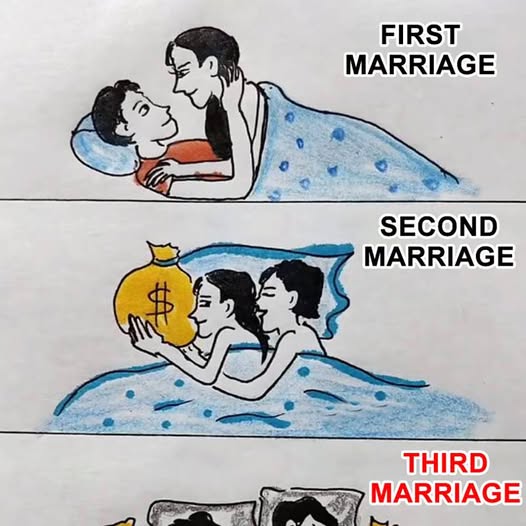Marriage is one of life’s most defining journeys, but that journey can look quite different depending on whether it’s your first, second, or even third time walking down the aisle. Each marriage represents a new chapter and comes with its own set of expectations, lessons, and transformations that are deeply tied to a person’s stage in life and accumulated experiences.

The first marriage is often entered into with idealism and a sense of romantic adventure. For many, it’s about finding that one perfect person, building a life together from scratch, and dreaming big about the future. First marriages are usually filled with hopes, dreams, and a belief that love will conquer all. Couples might be younger, less experienced, and more optimistic, which is both a blessing and a challenge.
The lack of relationship experience can sometimes lead to misunderstandings, unrealistic expectations, and communication breakdowns. People in first marriages are often still learning who they are as individuals, which can affect how they grow as partners. The emphasis is on creating shared goals—like buying a house, starting a family, or establishing financial stability—which can be rewarding but also put pressure on the relationship. When the second marriage comes around, things are very different.
It typically follows a divorce or the loss of a spouse, which means both individuals are entering the union with a better understanding of what works and what doesn’t in a relationship. Second marriages are less about fantasy and more about reality. People tend to be more cautious, more practical, and more focused on compatibility rather than pure chemistry. There’s often a strong desire to avoid past mistakes, and communication tends to be more direct. Many people bring children from their first marriage into the second, which adds complexity but also deepens the sense of family and responsibility.
Trust may be more guarded, but it’s also built on more conscious efforts. Second marriages are typically more mature, not just because the people are older but because they’ve lived through the consequences of a failed relationship and are determined not to repeat the same patterns. Then there’s the third marriage, which is an entirely different ball game. By this point, people are usually very aware of who they are and what they want in a partner. The third marriage is less about societal norms or expectations and more about emotional fulfillment and companionship. It may be driven by the need for deep connection rather than traditional milestones like children or financial growth. Many individuals in a third marriage have already raised their families, built careers, and navigated their share of challenges. This stage is often about peace, stability, and meaningful partnership. There’s less drama, fewer illusions, and more appreciation for shared moments and understanding. The stakes may feel lower, but the emotional payoff can be greater. People in third marriages usually prioritize joy, laughter, and mutual respect over perfection or proving something to the world. In short, while the core institution of marriage remains the same, the meaning and experience of it can shift drastically with each iteration. A first marriage is often about hope, a second is about learning and healing, and a third is about acceptance and contentment. None is better or worse than the other; they simply reflect where a person is in their emotional journey and what they’ve learned along the way. Each marriage, whether it succeeds or not, shapes who we are and teaches us something valuable about love, resilience, and growth. With every step down the aisle, we become a little wiser, a little more self-aware, and hopefully, a little closer to finding the kind of love that feels just right.





